I Bought Ducati's Weirdest Bike From The 1990s Without Riding It Because It's Shiny
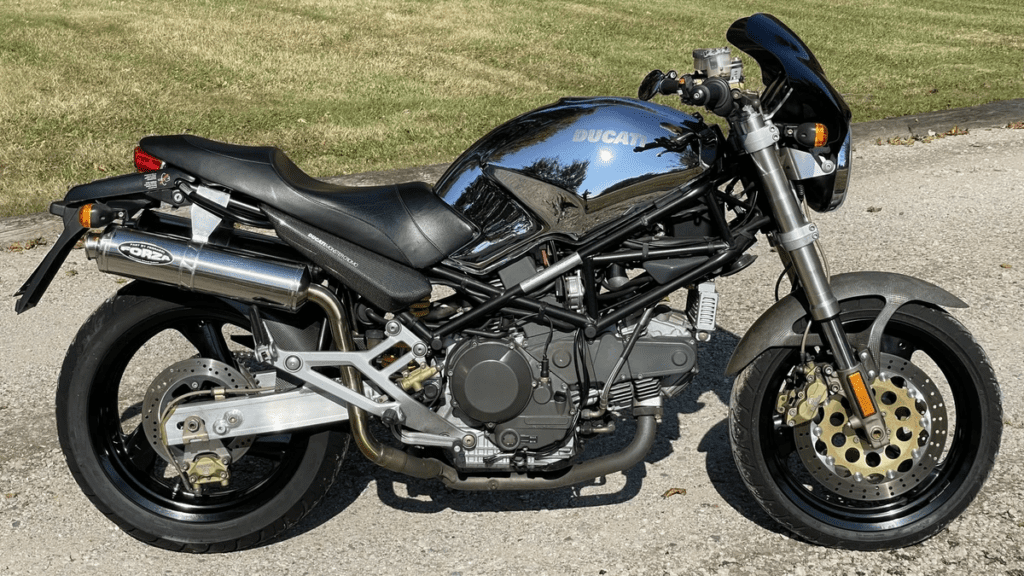
I am a sucker for a Ducati Monster of any flavor, but particularly the pre-2001 carbureted models. I have been looking for a nice rider-grade example for a couple of years, but never got inspired enough to pull the trigger. Until this little chromey guy came along. When the listing on Bring A Trailer loaded on my computer screen, I knew I had to at least bid. I sent a text to my wife with the link and said “BTW, if this stays under 5K, I might have to bid” and she replied, “KK.” Green light, let’s fucking go! Okay, so I went $100 over my original self-imposed budget, but I think she’ll forgive me. So I’m a Ducati owner.
Audi’s Biggest Crossovers Offer A Peek Into The Brand’s Identity
While the second-generation is probably the more iconic and recognizable Monster, these early bikes really helped save the company from itself and changed the entire motorcycle industry. When designing the Monster, Ducati’s goal was to make a style-conscious urban machine, but the company didn’t really have any money to develop a new line, so it had to be a parts bin special. The engine came from the 900 Supersport, the frame is a lightly modified 851 Superbike, and the upright fork is from a 750 Supersport. When it was put together, it was somehow greater than the sum of its parts, and kicked off an upright naked bike craze in the motorcycle world.
Image: Bring A Trailer
It’s a relatively lightweight and powerful bike, and delivers a lot of stuff my BMW GS and Harley-Davidson Livewire don’t. None of this bike’s plusses are rational or workaday, it’s all emotional. Of course it is, it’s an Italian bike. Nobody buys an Italian bike because they’re being rational. Hell, there aren’t many American bike buyers who use rational thought anywhere in the buying process. We buy bikes because we’re excited about them. And they’re shiny.
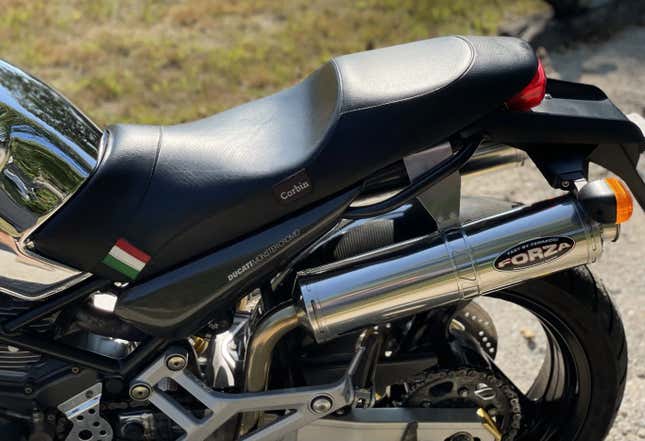
Image: Bring A Trailer
In 1999 before the bike switched to fuel injection for 2000, Ducati introduced a series of limited edition models to run out the parts supply and hopefully boost sales. Allegedly 101 Monster 900 Cromos were built, though some say that number is inflated because Ducati mucked up the chroming process and cancelled the run somewhere in the middle. I haven’t found an official source for Cromo numbers, but I don’t really care. This isn’t a collector piece, I’m going to ride the damn thing.
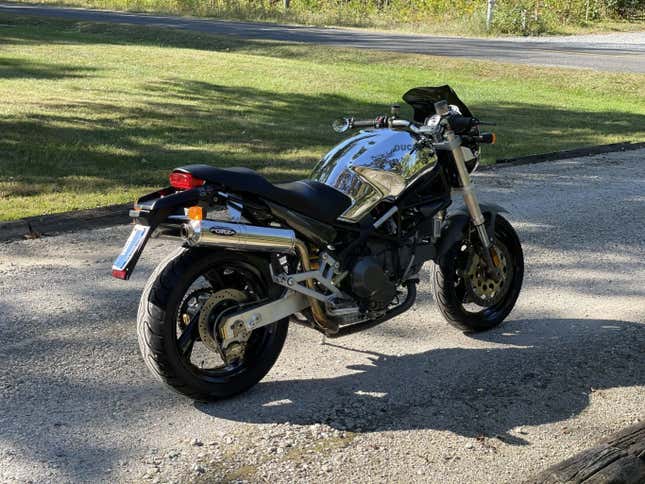
Image: Bring A Trailer
The Cromo is obviously named for its chrome fuel tank, but it also got a few other tweaks to set it apart from a regular M900. The Cromo got a full spate of carbon fiber trim, including a carbon rear seat cover which was removed from this bike, but is in a box of parts that comes with the bike. Factory adjustable suspension was also on the cards, unlike the standard M900s. With 74 horsepower onboard, and a sub-400 pound weight, it should be pretty quick, but won’t win any superbike battles. It should be plenty of fun at my next track day.
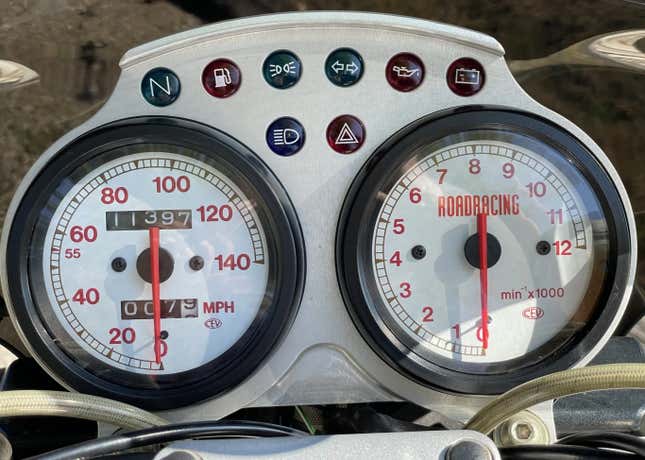
Image: Bring A Trailer
I bought this example from the guy who bought it brand new and has put every one of the 11,000 miles on the odometer. Back in 1999 he had the bike tricked out with a few extra goodies, including an aftermarket exhaust, bar end mirrors, a Corbin comfort seat, a K&N intake, bigger carburetor jets, aftermarket gauges with a real tachometer, and a tinted flyscreen. It needs a belt service and some tires in the near future, but considering the price I paid, I’m pretty happy with it.
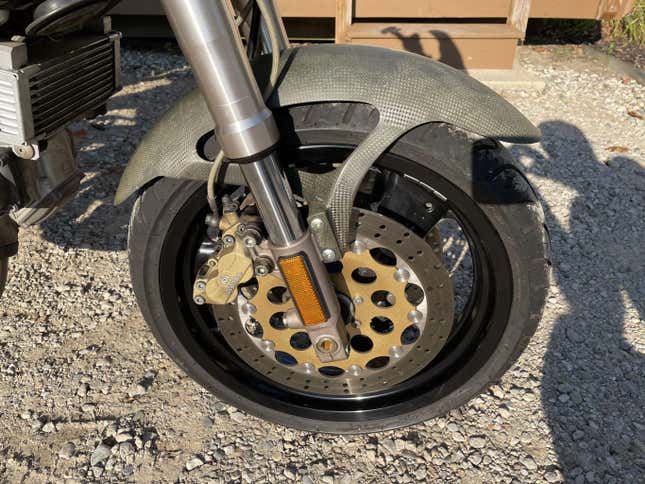
Image: Bring A Trailer
I’ll be traveling for the next three weeks, so I won’t be able to pick it up from the seller until late October, but I look forward to digging into this thing as a winter project to keep my fingers busy. From what I know about the seller and what I can tell from the images, this thing has been well taken care of, but it hasn’t been sitting in climate controlled garages its whole life, and it’s actually been ridden. It’s a good bike, even if I haven’t laid eyes on it yet.



